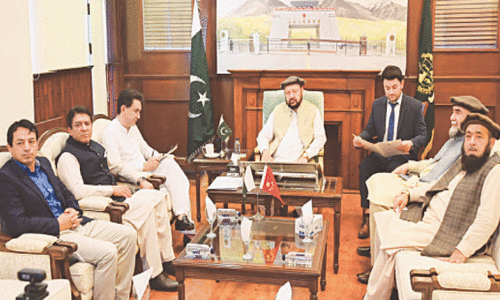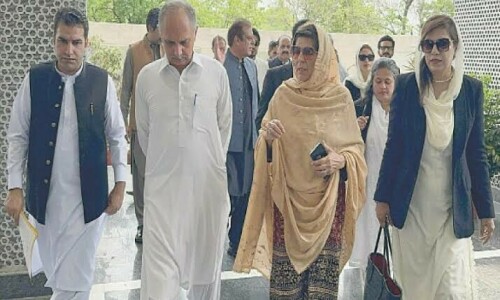HYDERABAD, Nov 3: Leader of the World Sindhi Congress Dr Munawar Halepoto has said that Sindhis are not against Pakistan. He was speaking at meet the press programme of the local press club on Thursday
He said it was not right to regard Sindhis as anti-Pakistan because the Sindh Assembly was the first one before the partition of India to adopt the Pakistan Resolution.
Dr Halepoto said there would have been no Pakistan had Sindh not opted for Pakistan.
He, however, regretted that Sindh was treated unfairly in all walks of life.
The leader of WSC said that Sindhis had never been involved in the process of decision-making and all decisions were thrust upon them.
He said that they were branded as traitors when they demanded for provincial autonomy.
He said they were demanding for autonomy with other small provinces because the collective rights of people were not protected in the country.
Dr Halepoto said the individual rights were fully protected in Europe and therefore the people were united.
He said 40 million people of Sindh were denied collective rights as well as individual human rights.
He said Sindh was generating more revenue than any other province of the country but still the people were suffering from a sense of deprivation.
The WSC leader said Sindh was the richest province of the country and it had abundance of minerals and other natural resources.
He said Badin produced 80,000 barrels of oil per day and yet people were committing suicide due to unemployment.
He pointed out that new settlements would come into existence and there would be a great demographic change in the province after opening of the Khokhrapar route.
Dr Halepoto said that experts had succeeded in convincing people that the construction of Kalabagh dam was necessary for the province.
He said the people of Sindh had unanimously rejected the dam but the rulers wanted to construct it at any cost.
He said there was no water in the Indus river and scores of people had died in Hyderabad one year ago due to poisonous water.
The leader of WSC said a process of decentralization had been initiated in the country and the districts had been bifurcated.
Speaking on the occasion, the vice chairperson of the Sindh Bar Council and a noted human rights activist, Noor Naz Agha, was highly critical of the recent judicial appointments in Sindh.
She said that only three out of nine newly appointed judges in the Sindh High Court were Sindhi speaking.
Ms Agha said that only nine judges out of 26 judges in total of the Sindh High Court were Sindhi speaking.
She said there was no chance of any Sindhi judge to become the chief justice of the province under these circumstances.












































